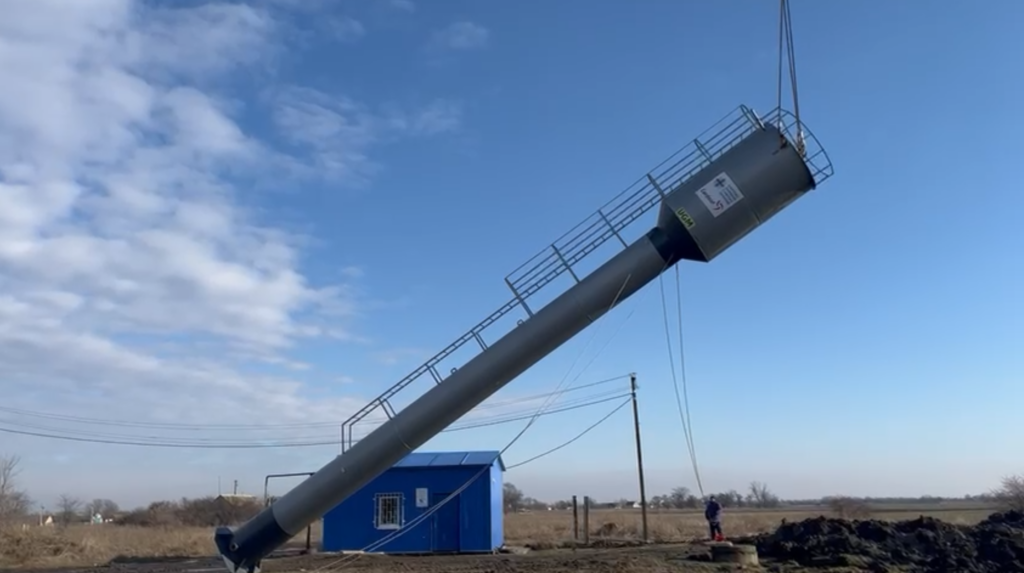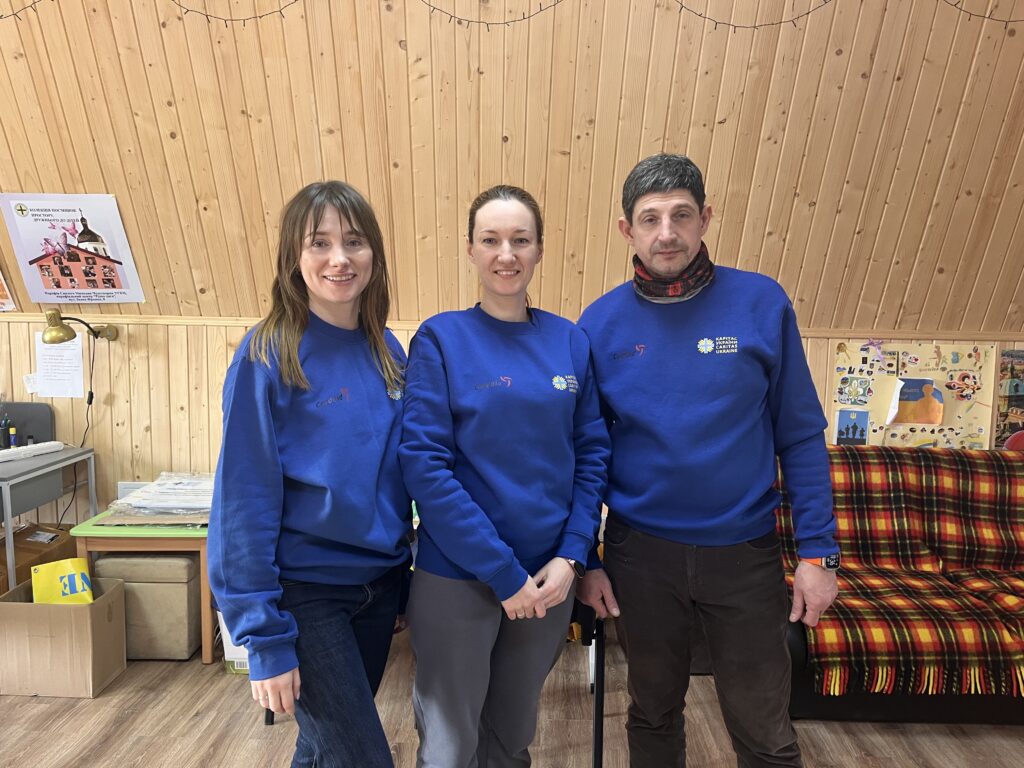Since the escalation of the war in February 2022, Cordaid has been collaborating with the partners of the Caritas network to provide various forms of humanitarian assistance in Ukraine. Now the activities are nearing the two-year mark, we are highlighting one of the many achievements of our Ukrainian colleagues. “Our efforts are not just for the people who still live here, but also for those who might return in the future.”

There are areas in the eastern Dnipro, Kherson and Donetsk regions that are close to becoming desolate wastelands. In some villages, over half of the population left, fleeing the violence, the constant threats and the lack of infrastructure and essential services.
Displaced people often find a place to stay in the relatively safe cities in the west of the country. Others seek refuge in neighbouring countries or Western Europe. What about the other half? “A significant part of the remaining population belongs to vulnerable categories”, says Tetiana Yatsiuk, manager of Caritas Ukraine’s Water Sanitation and Hygiene programme. “Children, the elderly, and people with disabilities. Our support is vital for their well-being.”
Last week Tetiana, who is based in the capital Kyiv, visited the locations where Caritas has rehabilitated water systems at schools, daycares and hospitals. Thousands of people in the region did not have stable access to safe drinking water, because the sources had been destroyed during the bombings.
Proud symbol
The establishment of the water tower in the village of Velyka Kostromka in the Dnipro region is a proud symbol of the team’s accomplishments. It ensures a stable and constant water supply for the remaining 2,104 inhabitants.
“The situation there is still very bad”, Tetiana says. “We could hear the explosions and shooting in the distance. The area is still inhabited, but the school close to the new water tower was destroyed. Luckily, the children can follow their lessons online. But other than that, there is nothing for them to do.”
“After two years of war, we know how this works.”
In the Kherson and Donetsk regions, Caritas is replacing water towers, repairing boreholes and installing filtering systems. They expect to finish these activities in February, ensuring access to water for 9,122 people.
Overall, with Cordaid’s support, this project provides access to water for 33,400 people affected by the destruction of the Kakhovka Hydroelectric Station.
Minus 15°C
It is not only the ongoing fighting in Ukraine that poses great problems for the population and the aid workers supporting them. Winters in Ukraine are very harsh and temperatures of minus 15°C are not uncommon.
Tetiana: “Below zero is the standard during the winter months. This causes complications for our work. When it gets too cold, we sometimes need to stop for a week. That, combined with the many safety issues, makes our work quite challenging. But after two years of war, we know how this works. We keep distributing water, also to the unsafe areas. We feel the appreciation from the local authorities and the population. It means a lot to them.”

Returnees
Although peace in Ukraine at this moment sounds like a distant prospect, when designing its programmes, Caritas Ukraine is also taking long-term developments into account.
“Our efforts are not just for the people who still live here, but also for those who might return in the future”, Tetiana says. “Apart from providing emergency relief, we want to bring more stability to the region. When we plan to install equipment, the local authorities tell us not only to focus on the current population but to take the number of potential returnees into account as well. When the fighting stops, a certain number of people will want to come back immediately. We need to make sure they will have access to basic services when they do.
“Of course, we all hope this will end soon. Until then, we will keep supporting the population. No matter what.”